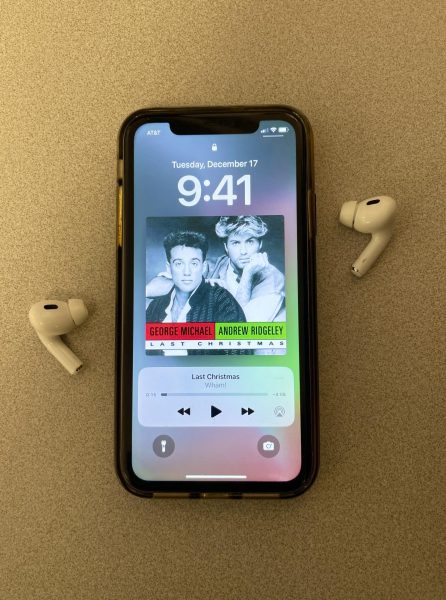Online Learning Negatively Impacts Students Mental Health and Well Being
With the switch from in-person to online learning, MCPS students have shifted to a new style of teaching and daily routine. While virtual instruction ensures that students and staff are safe from COVID-19, it has negatively affected many students’ mental health and well-being.
Due to the lack of social interaction, many students feel isolated from their peers and teachers. The deprivation of face-to-face communication and increased screen time due to virtual learning has contributed to increasing depression amongst students, according to mental health counselor Katie Lear, during an interview with The Daily Orange.
“Online learning has made me realize how isolated I am from my peers; I spend my entire day inside. Whether it’s to learn, study, eat or exercise, I’m always inside,” senior Gabby Diaz said. “Staring at a screen for the majority of my day is so much more tiring than in-person [activities].”
For those who struggle with anxiety and other mental illnesses, the disruption of students’ normalcy can become overwhelming. Even students who do not experience any mental health issues can begin to feel anxious and engulfed by the number of changes occurring.
“My motivation is a lot less [in online school],” senior William Phoone said. “While everything is so much easier, I’m missing out on interacting with my friends and playing sports, so there are a lot of downsides [to online school].”
While many school systems have found ways to try and accommodate online learning for students and teachers, some of these solutions have had the opposite effect.
“Although video calls have become an ideal solution to remote learning, they often can wear on one’s psyche,” clinical psychologist Brian Wind said in an October interview with The Daily Orange. “Zoom exhaustion has become a real problem with back-to-back online classes. Students may find video calls to be so draining because they’re struggling to process nonverbal cues, such as body language or voice tone.”
Online learning has also affected many students’ ability to learn and understand new material. Due to classes being virtual, there is no physical presence holding students accountable, allowing many to fall into the temptation of bypassing time on social media platforms instead of paying attention during class.
“I often find myself distracted during my online classes. I don’t think that any of my classes are engaging let alone productive, so I haven’t learned much of the material throughout my attendance so far. I don’t think it’s really my teachers’ fault but just an overall bad way of teaching,” freshman Eli Turner said.

Olivia Turner is currently a junior at RHS and the Production Head for the Rampage. This is her second year working on the Rampage after taking Intro to...







